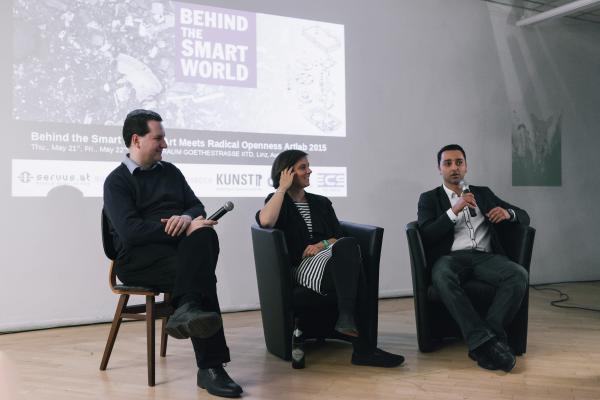
In today’s smart world everything is saved, and growing datasets become increasingly hard to manage. Data that has been migrated or not accessed is forgotten on old storage mediums. Once discarded, electronics start their journey as waste, containing digital traces of us. Electronic remains become landfill, some transform into toxic waste- lands such as Agbogbloshie in Ghana. Here our forgotten data resurface. How sensitive is the content of 22 hard- drives bought at Agbogbloshie? Can such data breaches expose individuals, companies or states? How realistic are these fears? During the ‘Behind-The-Smart-World’ ArtLab, invited experts and artists explore these questions. Together with data recovery and forensic experts we discuss the value and sensitivity of data. Media artists evaluate disposed data and repurposed it for artistic installations, performances, sonifications, experimental videos or sculptures
Behind the Smart World Artlab day 1: Expert talks
Thursday, May 21st, 19:00-22:00
at KunstRaum Goethestrasse xtd
WHAT IS THE VALUE OF DISPOSED DATA?
Introduction:
Linda Kronman & Andreas Zingerle (KairUs)
Speakers: Can Sinirtas (ECS Global, data rescue), Dr. Michael Sonntag (Johannes Kepler university, data forensics), Fieke Jansen (Tactical Technology Collective, data brokers)
Behind the Smart World day 2: A Field trip
Field trip to MGG Recycling (Müller Guttenbrunn Group) center in Amstetten. Chris Slijkhuis, responsible for E-Waste & Public Affairs gave us a tour through the center, showed us their shredder and talked in a presentation about his experiences at Agbogbloshie.
Evening:
Invited artists presented their work at the Kunstraum Goethestrasse xtd.
Emöke Bada (Hungary) Lilian Beidler (Switzerland) Joakim Blattman (Norway) Simon Krenn (Austria) Fabian Kühfuss (Germany) Marit Roland (Norway) Matthias Urban (Austria) Michael Wirthig (Austria) Pim Zwier (Netherlands)
Day 3 -5: Discussions, prototyping and experiments
